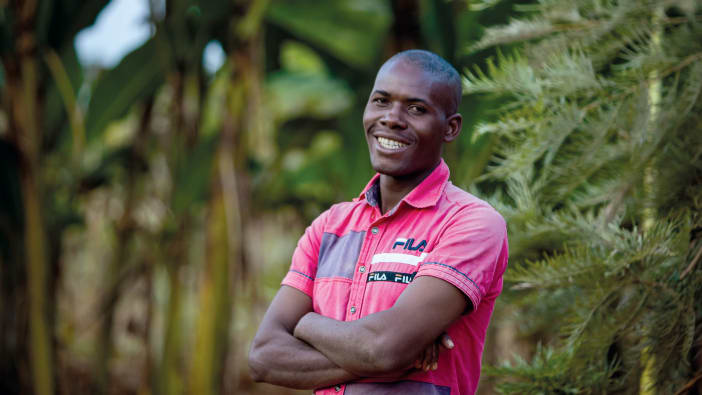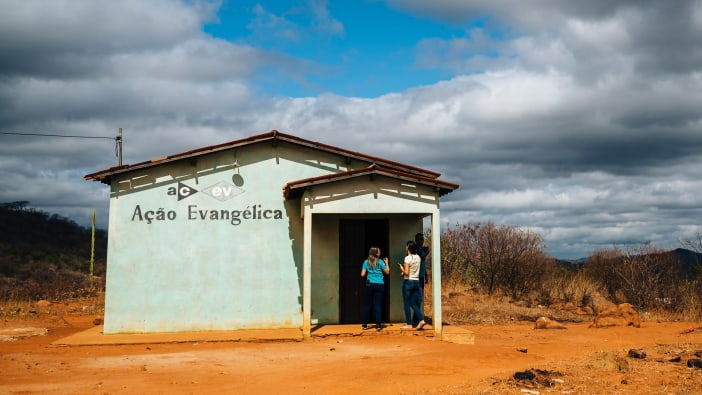
Articles
Asking questions
All of us use questions in our daily lives. Frequently the kind of questions we ask may make important differences to the information we can gather. Asking the wrong kind of questions will limit the information discovered.
2002 Available in English, Spanish, Portuguese and French

Photo: Isabel Carter
All of us use questions in our daily lives. Frequently the kind of questions we ask may make important differences to the information we can gather. Asking the wrong kind of questions will limit the information discovered.
There are several important types of question:
- closed questions which allow someone to say only yes or no
- leading questions which tend to make the person replying answer in a certain way – usually yes or no – and which may limit the information received
- ambiguous questions which are vague and confusing so the person can’t really understand what is being asked
- open-ended questions which allow the person replying to give more information
- probing questions which seek to discover more about what lies behind the initial replies.
There is no one correct way of asking questions. It depends on the purpose of the interview. However, open, probing questions are usually needed to discover useful information. These often begin with one of the six ‘helpers’: What? When? Where? Who? Why? How?
An interviewing exercise
Divide people into groups of three and ask them to choose one to act as inter-viewer, one as informant and the other as an observer. Suggest some topics on which to ask questions. Here are some suggestions:
- healthcare for older people in the area
- different uses for trees
- good practice in storing household water supplies
- where to obtain information on family spacing methods
- employment opportunities in the area
- child vaccination.
Allow each group ten minutes to try to discover as much as possible about their topic. Explain that good questioning is like peeling away the layers of an onion until the central core or reason is reached. Before starting, ask the group to suggest a few good probing questions. If they lack ideas, suggest a few such as ‘But why?’ ‘Please tell me more about that?’ or ‘Anything else?’
Allow each group to feed back their findings. Were leading questions used? What observations did each participant make? If two groups have taken the same topic, let one feed back after the other and compare their findings.
How easy did they find the interviewing? How well did they keep the interview going? What mistakes did people make?
Common mistakes
- not listening carefully (but preparing the next question)
- asking too many closed or leading questions
- helping the informant (often by answering your own questions)
- asking vague or ambiguous questions
- failing to explore people’s answers
- being unaware you have already made your own conclusions
- keeping the informant too long.
Participants may like to repeat the group exercise with a different topic to see if their interviewing skills have improved.
Adapted from ‘Improving listening and observation skills’ in A Trainer’s Guide for Participatory Learning and Action, 1995, by International Institute for Environment and Development (IIED). E-mail: [email protected] Website: www.iied.org
Practical exercise
Use this exercise to discover the differences between various questions. First, decide what type of question each one below is. Discuss situations where this might be appropriate and when it might be inappropriate. Then suggest alternative ways of asking the same question.
- How do you get your medicine?
- Isn’t the new health post wonderful?
- How do you find the school?
- Shouldn’t you cover your water storage pot?
- What do you do most of the time as a local health visitor?
- Do you take your children to be vaccinated?
- Wouldn’t you prefer to grow improved potato varieties?
- Is it true that it is difficult to find information on family spacing?
Share this resource
If you found this resource useful, please share it with others so they can benefit too.

Subscribe to Footsteps magazine
A free digital and print magazine for community development workers. Covering a diverse range of topics, it is published three times a year.
Sign up now - Subscribe to Footsteps magazine






